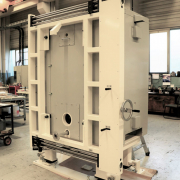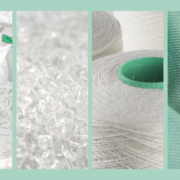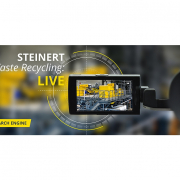Goal: French-Chinese Partnership to Build PET Biorecycling Plant
In June this year, France-based biotech company Carbios and Chinese Zhink Group announced the signing of a joint Letter of Intent to build a biorecycling plant in China using Carbios’ enzymatic depolymerization technology to serve the global market.
This agreement would officialize collaboration towards a long-term partnership given a first licensing contract to build a plant with a minimum annual processing capacity of 50,000 tons of prepared PET waste. It would contribute to accelerating a circular economy for plastic and textiles, a press release underlined. “China, as the leading producer of PET in the world, is a key market for Carbios, and this agreement would establish a presence in this dominant market.”
China annually produces 67 million tons of PET, which corresponds to 61 percent of the global production, the information said, referring to HIS Markit 2021, Market Research Future 2021. With regional and international demand for recycled PET growing, China would also have the potential to take the lead in recycled PET (r-PET) production. In 2021, 58 percent of the world’s r-PET was consumed in Asia (with 38 percent in China) underscoring this region’s importance both as a major producer and consumer.
According to the information, China is as well a key transformer of PET into resins and fibers used in numerous applications in the packaging and textile industries. “Most notably, China is the primary country for transforming PET into fiber, representing 78 percent of all PET fiber transformation in the world”. Sustainability and the “dual carbon” policies were considered as main drivers for the Chinese PET recycling industry (the government’s guidelines to establish a waste recycling system: https://english.www.gov.cn/policies/latestreleases/202402/09/content_WS65c5ea15c6d0868f4e8e3e8a.html).
Strategic partnership for Zhink and Carbios
As reported, for the Chinese partner, the strategic focus is on developing two global industries, PET and textiles, and to be a leader with sustainable competitiveness. Zhink would be a major actor within the PET market with an annual production of three million tons of PET, serving domestic and global markets. Carbios had developed an enzymatic depolymerization technology “that enables efficient and solvent-free recycling of PET plastic and textile waste into virgin-like products”. The initial agreement between the two groups would allow Zhink to increase its recycled PET capacities and meet its sustainable competitiveness objectives. As emphasized, the circular recycling solution “can process all types of PET waste including hard-to-recycle waste (such as opaque and colored bottles, multilayer food trays and textile waste) while reducing CO2 emissions by 57 percent compared with virgin PET production”.
For Carbios, this agreement would mark a significant step in deploying its technology worldwide and the roll-out of its licensing model to achieve its ambition to become a leading technology provider in recycling PET by 2035. “This Asia-based plant under license by Zhink would come in addition to the world’s first industrial-scale enzymatic PET recycling plant, which is currently under construction in Longlaville, France.” Furthermore, the opening of official discussions with Zhink for a licensing agreement marks an important milestone in Carbios’ market entry into China. Since its inception, the French group has proactively protected its innovations in all key regions of interest. “With China considered as a major market, all of Carbios’ families of patents own one or more titles in this country. For its PET bio recycling technology, Carbios currently has 28 titles in force in China covering both the industrial process and the enzymes used (including variants that will be used in the industrial process).”
carbios.com
zhink.cc/index-en.html
(Published in GLOBAL RECYCLING Magazine 3/2024, Page 11, Photo: Carbios)









